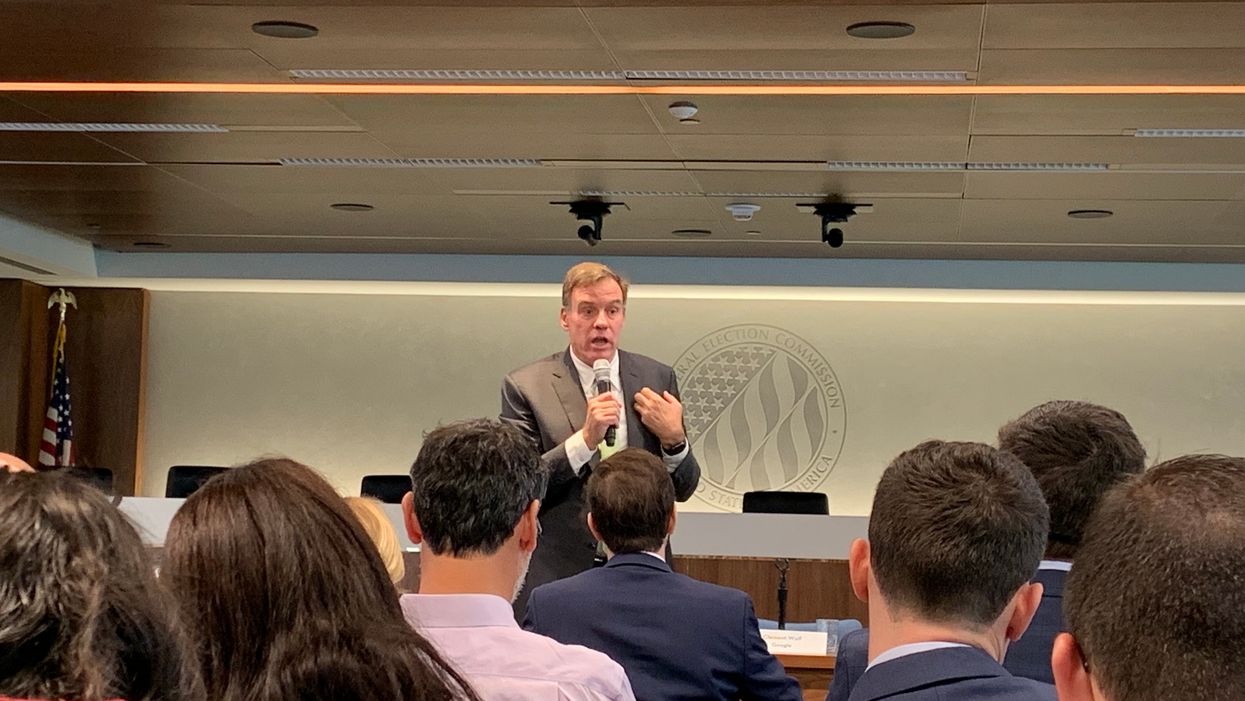The spread of disinformation online promises to be one of the biggest threats to American democracy during the 2020 election and beyond, if no action is taken. But efforts to defend against these falsehoods remains hamstrung by partisanship.
Federal Election Commission Chairwoman Ellen Weintraub called disinformation "a fundamental assault on democracy" during a digital disinformation symposium this week at FEC headquarters in Washington.
Weintraub, along with PEN America and the Global Digital Policy Incubator at Stanford University, invited politicians, government officials, tech companies, academics and media representatives to the symposium to discuss disinformation and how to combat it. There were no ready answers.
Adversaries, both foreign and domestic, look for division and discord when targeting their disinformation campaigns, so they can drive that wedge deeper, said Ginny Badanes, a Microsoft representative on one of Tuesday's symposium panels.
With the 2020 campaign rapidly intensifying, the major concern among the panelists was that these disinformation campaigns will suppress voter turnout and erode confidence in next November's outcome.
While the panelists could agree something needed to be done, no one professed to have a "silver bullet" solution. On the contrary, one of the unifying themes of the conference was participants insisting there was no such singular cure-all.
Another consensus was that the federal government needs a unified approach to fighting against disinformation, and not just during election season. But panelists were doubtful such effort would come together in time for the presidential election.
Democratic Rep. Stephanie Murphy, a former Pentagon intelligence analyst who says her Florida constituents have been unduly victimized by disinformation, pointed to the apparent partisan impasses thwarting two pieces of legislation widely seen as having big potential to improve America's defense against election hacking through social media or cyber attacks. One would set the same disclosure rules for online campaign advertisers as exist for political spots on television. The other would provide incentives for states to adopt voting systems with auditable paper trails, because all electronic systems are vulnerable to hacking.
While some election security bills have bipartisan support, none have moved all the way through Congress because Republicans and President Trump oppose them. Most notably, the sweeping democracy reform bill HR 1, which includes election security provisions, has hit the wall in Mitch McConnell's Republican Senate after House Democrats passed it in March.
"The topic of election security has been poisoned by partisan politics," Murphy said. "The U.S. will never muster a whole of society response if the whole of society doesn't first recognize the problem."
The Senate Intelligence Committee's top Democrat, Mark Warner of Virginia, who gave the opening speech at the symposium, agreed that bipartisan consensus needed to happen fast if anything is going to get implemented in time to protect the integrity of the 2020 campaign.
"How in the heck did we come to 2019 and think that the protection of our election security should be a partisan issue? I mean would we ever think that the protection of our electric grid or our financial system should be a partisan issue?" he said.
Apart from Congress, Warner also put the onus on tech and social media companies to regulate disinformation on their platforms. Labeling the source of information, for example, could better distinguish humans from bots and deter deception, he said.
The agency that hosted the session has been grappling with its own partisan impediments because starting this month only three of its six seats are filled, and the absence of a quorum means it's largely neutered as the congressional and presidential campaign finance watchdog.
Although a plan of action was not decided at the symposium, Weintraub said she hopes it sparks continued conversations on comprehensive solutions.
"We need to all pull together for the good of our democracy," she said.




















